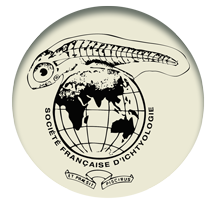Bendima: a database for marine macro-invertebrate bycatch data designed to improve reproducibility in benthic ecology
Corresponding author: Alexis Martin, alexis.martin@mnhn.fr
How to cite: Martin, A., Blettery, J., Dettaï, A., Rosset, N., & Gousseau, Y. (2023). Bendima: a database for marine macro-invertebrate bycatch data designed to improve reproducibility in benthic ecology. Cybium, 47(3): 325-334. https://doi.org/10.26028/CYBIUM/2023-020
The difficulty of identifying marine macro-invertebrates and the lack of experts, added to the growing use of complex modeling approaches based on massive datasets, has led to a reproducibility crisis in benthic ecology. Improving the reliability of identification remains a key factor to increase the quality of raw data. We developed the database Bendima to manage benthic macro-invertebrate bycatch data from the scientific survey of the French Southern Ocean and Indian Ocean fisheries. This database is structured to store observations of macro-invertebrates in the form of images of the caught organisms associated to sampling effort data and molecular data, which allows for ongoing amendments to identifications and crossreferencing with barcode data. Once uploaded and stored as digital images, the Bendima observations data underpinning models can be fully assessed, criticized and compared. Here, we describe the Bendima system and provide an overview of the contents for teams involved in biodiversity database development, benthic ecology or fisheries monitoring.


